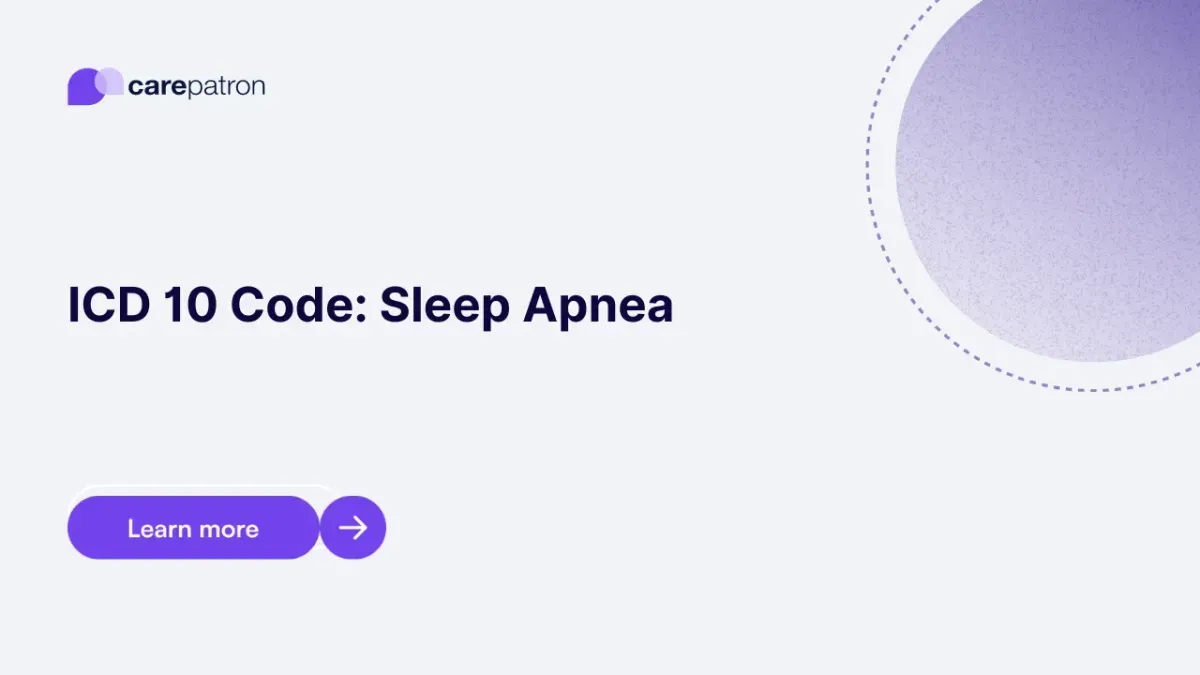
Sleep Apnea ICD-10-CM Codes
Read this short guide and learn about sleep apnea ICD codes you can use!
Use Code
Commonly asked questions
There is one, but we don’t recommend using that because it is unbillable and invalid.
Healthcare professionals will conduct a Home Sleep Apnea Test or a Polysomnogram (an overnight sleep study).
This will depend on the severity of the sleep apnea. Simple ways to treat sleep apnea include nasal sprays, adhesive strips, weight loss, nerve stimulators, and sleep aid items. CPAP machines are sometimes used to manage sleep apnea. For severe cases, surgery procedures like somnoplasty, nasal surgery, and jaw surgery are options.
EHR and practice management software
Get started for free
*No credit card required
Free
$0/usd
Unlimited clients
Telehealth
1GB of storage
Client portal text
Automated billing and online payments
